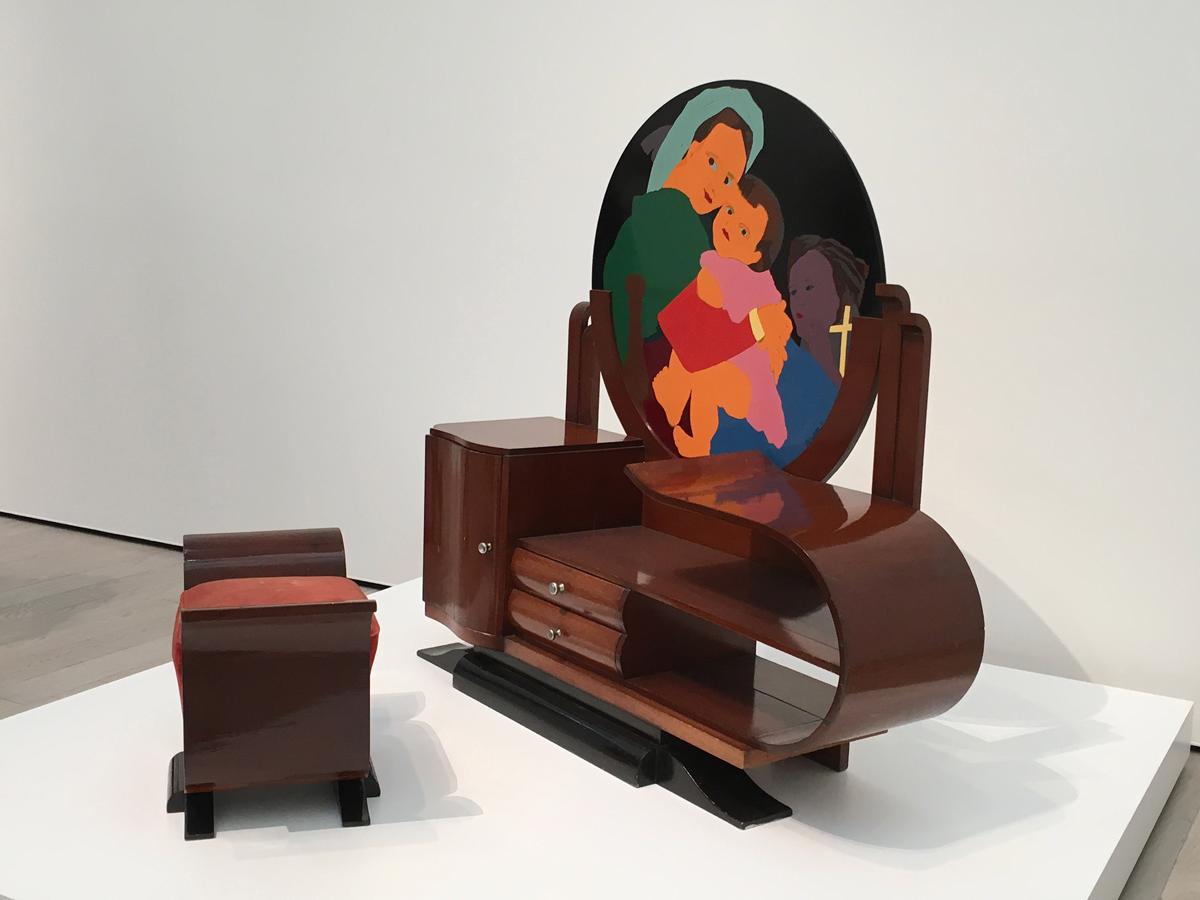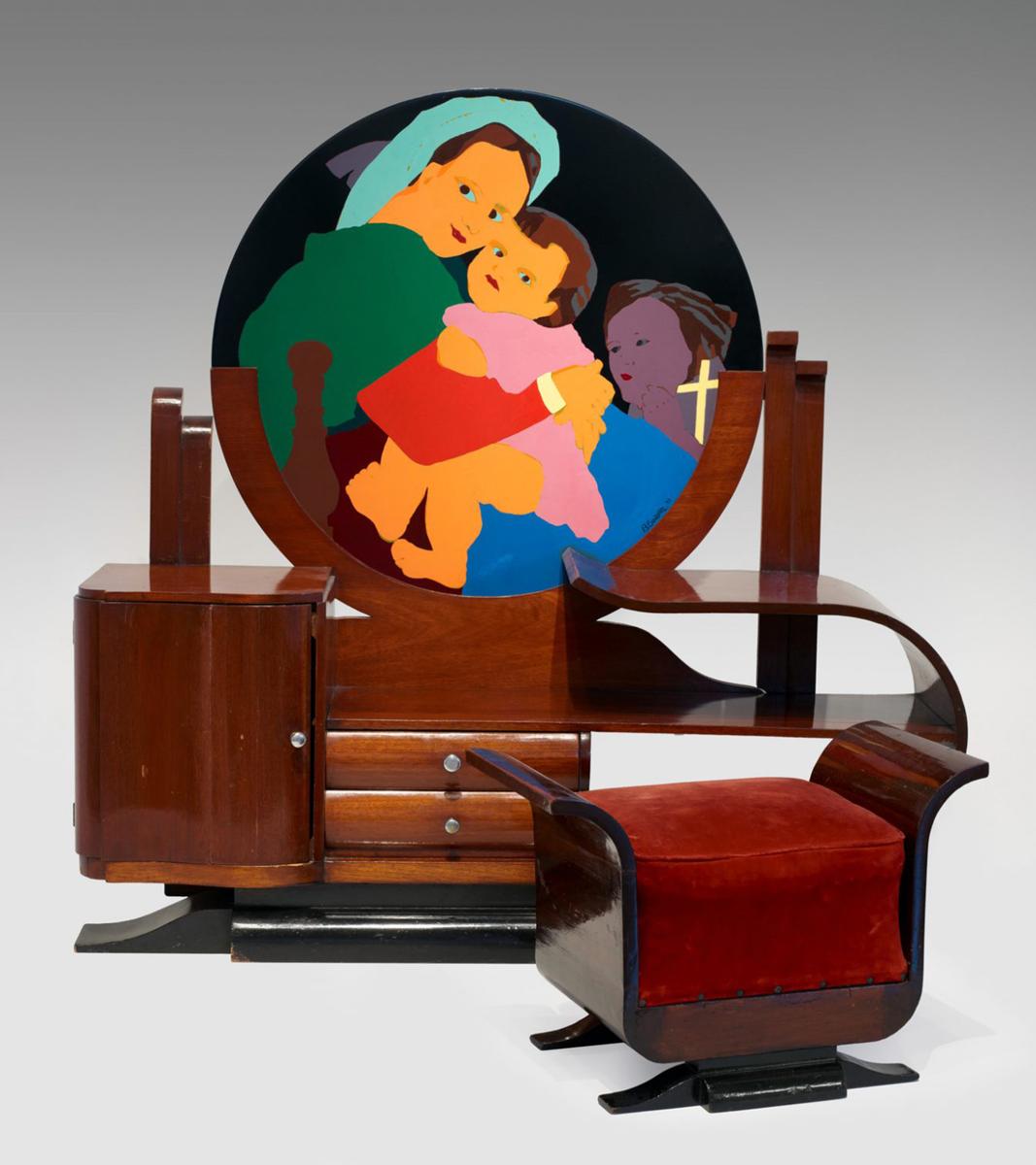January 3: Witnesses to Jesus
♫ Music:
Day 32 - Wednesday, January 3
Title: Witnesses to Jesus
Scripture: John 5:30-47
“I can do nothing on my own. As I hear, I judge, and my judgment is just, because I seek not my own will but the will of him who sent me. If I alone bear witness about myself, my testimony is not true. There is another who bears witness about me, and I know that the testimony that he bears about me is true. You sent to John, and he has borne witness to the truth. Not that the testimony that I receive is from man, but I say these things so that you may be saved. He was a burning and shining lamp, and you were willing to rejoice for a while in his light. But the testimony that I have is greater than that of John. For the works that the Father has given me to accomplish, the very works that I am doing, bear witness about me that the Father has sent me. And the Father who sent me has himself borne witness about me. His voice you have never heard, his form you have never seen, and you do not have his word abiding in you, for you do not believe the one whom he has sent. You search the Scriptures because you think that in them you have eternal life; and it is they that bear witness about me, yet you refuse to come to me that you may have life. I do not receive glory from people. But I know that you do not have the love of God within you. I have come in my Father's name, and you do not receive me. If another comes in his own name, you will receive him. How can you believe, when you receive glory from one another and do not seek the glory that comes from the only God? Do not think that I will accuse you to the Father. There is one who accuses you: Moses, on whom you have set your hope. For if you believed Moses, you would believe me; for he wrote of me. But if you do not believe his writings, how will you believe my words?”
Poetry:
The Risk
By Marcella Marie Holloway
You take a risk when you invite the Lord
Whether to dine or talk the afternoon
Away, for always the unexpected soon
Turns up: a woman breaks her precious nard,
A sinner does the task you should assume,
A leper who is cleansed must show his proof:
Suddenly you see your very roof removed
And a cripple clutters up your living room.
There’s no telling what to expect when Christ
Walks in your door. The table set for four
Must often be enlarged and decorum
Thrown to the wind. It’s His voice that calls them
And it’s no use to bolt and bar the door:
His kingdom knows no bounds of roof, or wall, or floor.
AM I A WITNESS?
“How can you believe, when you receive glory from one another and do not seek the glory that comes from the only God?”
Today’s Scripture passage ends in a convicting place. After naming numerous witnesses to the reality of Himself, Jesus is swift to show the symptoms and dangers of ignoring those witnesses. He teaches us that it’s possible to search the Scriptures in vain. He tells us that it is possible to look at the wrong thing, to listen to the wrong people, to set hope in the wrong place. How can you be a witness, if you don’t believe? And how can you believe if you’re not even looking at the right thing?
Rather than looking to ourselves or trying to receive glory from one another, we are called to look to Jesus, receive Him no matter the risk, and believe what He says.
Today’s artwork calls us to consider proper orientation. Rather than being merely about self-reflection, the visual art suggests Mary as another example of a humble and faithful witness to Jesus. Mary, through her humility, chooses to risk it all, to receive Christ, not knowing where it will lead her. It is a choice she makes only by setting her gaze beyond herself, trusting in the Father’s will. When I sit down to examine myself (for instance, in front of a mirror), I’m tempted towards mere vanity. But any self-reflection must always be through the lens of Christ's words and work. Instead of relying on my own self-estimation, I look at Jesus. I gaze beyond myself and risk humble obedience. The only way to be a witness is by fixing my eyes toward the right thing.
This orientation beyond oneself is risky. We see this risk taken by countless artists and creatives. Take for instance, jazz musicians: the best ones aren’t defined by their incredible solos; they shine brightest as other-focused team players. The jazz musician tunes her ear towards her bandmates. To play jazz well, your eyes have to be large, watching for the smallest cue. Your heart has to be open, and you have to be willing to release your expectations. In jazz music, and in any act of radical hospitality, there’s a willingness to be surprised.
Today’s poem speaks of this willingness to be surprised, to risk it all. By letting go and looking outward, we invite Christ’s Spirit to move and share, and create with and within us. And it’s only there, in that posture of openness to come to Christ, wherever he may be and receive him however he is, that we become true and faithful witnesses. There’s no telling what we might see, but the beauty is worth the risk.
Prayer:
Lord, give us eyes to see you, ears to hear you, doors flung open to receive you. Deliver us from fear of discomfort, busyness of spirit, and hardness of heart. May we risk all to be with you.
Amen.
Rachel Glazener
Alumna of the Conservatory of Music
Advent Project V Music Curator
Chad Glazener
Admissions and Recruitment Coordinator
Torrey Honors Institute
About the Artwork:
Vanity, 1971
Beatriz González
Enamel on metal sheet assembled on a wooden vanity table
The Museum of Fine Arts
Houston, Texas
About the Artist:
Beatriz González (b. 1938) is a Colombian painter, associated with the Pop Art movement. She grew up in Colombia in the 1940s and 1950s, during an era of political unrest known as La Violencia. Initially González was a traditional painter, inspired by artists such as Vermeer and Velazquez, but in the early 1970s her reflection on consumption and materiality led her to incorporate mass-produced items within her work. She uses bold colors and flat figures to represent images taken from magazines and newspapers as a means of documenting the political and social climate of her homeland. Merging her artistic practice with furniture, her style is bold, simplified, and often garish, with off-kilter color choices and flat forms, mimicking an untrained hand for a purposefully kitsch effect. She essentializes known masterpieces, paring them down to their basic shapes while adding her own adjustments in color and expression.
About the Music:
“The Watcher” from the album Chris Thile and Brad Mehldau
About the Composers and Performers:
Bradford Alexander "Brad" Mehldau (b. 1970) is an American jazz pianist, composer, and arranger. He was a member of saxophonist Joshua Redman's Quartet and has led his own trio since the early 1990s. Since the early 2000s, Mehldau has experimented with other musical formats in addition to trio and solo piano. Largo, released in 2002, contains electronics and input from rock and classical musicians; later examples include touring and recording with guitarist Pat Metheny, writing and playing song cycles for classical singers including Renée Fleming and Anne Sofie von Otter. Aspects of pop, rock, and classical music, including German Romanticism, have been absorbed into Mehldau's writing and playing. Through his use of some traditional elements of jazz, simultaneous playing of different melodies in separate hands, and incorporation of pop and rock pieces, Mehldau has influenced musicians in and beyond jazz in their approaches to writing, playing, and choice of repertoire.
Christopher Scott "Chris" Thile (b. 1981) is an American mandolinist, singer, songwriter, and radio personality, best known for his work in the progressive acoustic trio Nickel Creek and the acoustic folk/progressive bluegrass quintet Punch Brothers. He is a 2012 MacArthur Fellow. On October 15, 2016, he became the host of the radio variety show A Prairie Home Companion.
About the Poet:
CSJ Sister Marcella Marie Holloway (b.? - 2003) was an author, poet and longtime English professor at Fontbonne University in Clayton, Missouri.
About the Devotional Writers:
Both originally from Arizona, Rachel and Chad Glazener transplanted to California to attend Biola - Chad in 2004 as a biblical studies major, and Rachel in 2006 to study flute and piano performance. From 2012 to 2016, Rachel served as Networking Coordinator for the Conservatory of Music. Chad is currently Admissions and Recruitment Coordinator for the Torrey Honors Institute and is also completing his MDiv at Fuller Theological Seminary. The Glazeners have been married since 2011 and have two daughters, Madeleine and Lucy.

